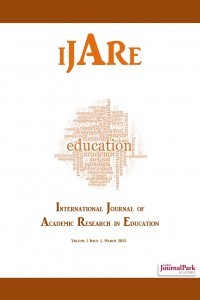Stories from the Frontlines: In-Service Teachers’ Demotivating Factors and Policy Recommendations
Stories from the Frontlines: In-Service Teachers’ Demotivating Factors and Policy Recommendations
The purpose of this current study was to explore the demotivating factors among Indonesian senior high school English teachers in teaching English as a foreign language at two senior high schools in Jambi City, Indonesia through demographic background surveys and semi-structured in-depth interviews. The research design was qualitative in the case approach. The interviews data were analyzed through using the constant comparative method developed by Glaser and Strauss (1967), six salient and interweaved themes related to the demotivating factors that emerged in this research were students’limited basic knowledge in English language, students’ lack of motivation, school environment, limited supporting facilities, working conditions, and teachers’ workload. Policy recommendations and implications of findings and future research are also discussed.
___
- Addison, R., & Brundrett, M. (2008). Motivation and demotivation of teachers in primary schools: The challenge of change. Education, 36(1), 79‐94.
- Aydin, S. (2012). Factors causing demotivation in EFL teaching process: A case study. The Qualitative Report, 17 (101), 1‐13.
- Chambers, G. (1993). Taking the 'de' out of demotivation. Language Learning Journal, 7, 13‐16.
- Creswell, J. W. (1997). Qualitative inquiry and research design: Choosing among five traditions. Thousand Oaks, CA: Sage Publications, Inc.
- Creswell, J, W. (2007). Qualitative inquiry and research design: Choosing among five traditions. Thousand Oaks, CA: Sage Publications.
- Creswell, J, W. (2011). Educational research : Planning, conducting, and evaluating quantitative and qualitative research. Boston: Pearson Education, Inc.
- Dinham, S. & Scott, C. (2000). Moving into the third, outer domain of teacher satisfaction. Journal of Educational Administration, 38 (4), 379‐396.
- Dörnyei, Z. (2001). Teaching and researching motivation. Essex: Pearson Education Limited.
- Dörnyei, Z. & Ushioda, E. (2011).Teaching and researching motivation. UK: Pearson Education Limited.
- Doyle, T., & Kim, M. Y. (1999). Teacher motivation and satisfaction in the United States and Korea. MEXTESOL Journal, 23(2), 35‐48.
- Fattash, M. M. (2013). Demotivating factors of university ESL teachers. International Journal of Humanities and Social Science, 3 (19), 125‐ 132.
- Glaser, B., & Strauss, A. (1967). Discovery of grounded theory. Chicago: Aldine.
- Hettiarachchi, S. (2013). English language teacher motivation in Sri Lankan public schools. Journal of Language Teaching and Research, 4 (1), pp. 1‐11.
- Johnson, B., & Christensen, L. B. (2008). Educational research: Quantitative, qualitative, and mixed approaches. Boston: Sage Publications.
- Johnson, C. R. (2000). Factors influencing motivation and de‐motivation of Mexican EFL teachers. Paper presented at the annual meeting of Teachers of English to Speakers of Other Languages, Vancouver, Canada.
- Kiziltepe, Z. (2008). Motivation and demotivation of university teachers. Philadelphia, PA: Taylor and Francis, Ltd.
- Linares, J. J. G., Diaz, A. J. C., Fuentes, M. C. P., & Acien, F. L. (2009). Teachers’ perceptions of school violence in a sample from three European countries. European Journal of Psychology of Education, 24(1), 49‐59.
- Lincoln, Y. S., & Guba, G.B. (1985). Naturalistic inquiry. Newbury Park, CA: Sage Publications.
- Lynch, L. M. (2008). Three critical problems in English language teaching and learning and what to do about them. Retrieved from: http://Ezinearticles.com/?expert=Larry –M‐Lynch.
- Marshall, C., & Rossman, G. B. (1999). Designing qualitative research. Thousand Oaks, CA: Sage.
- Merriam, S.B. (1998). Qualitative research and case study applications in education. San Francisco, CA: Jossey‐Bass.
- Menyhárt A. (2008).Teachers or lecturers? The motivational profile of university teachers of English. WoPaLP, 2, 119‐137.
- Miles, M.B., & Huberman, A.M. (1994). Qualitative data Analysis: An expanded sourcebook. San Francisco, CA: Sage Publications, Inc.
- Mukminin, A. 2012. Acculturative Experiences Among Indonesian Graduate Students in US Higher Education: Academic Shock, Adjustment, Crisis, and Resolution. Excellence in Higher Education , 3 (1),14‐36.
- Soureshjani, K. H., & Riahipour, P. (2012). Demotivating factors on English speaking skill: A study of EFL language learners and teachers’ attitudes. World Applied Sciences Journal, 17 (3), 327‐339.
- Spear, M., Gould, K., & Lee, B. (2000). Who would be a teacher? A review of factors motivating and demotivating prospective and practicing teachers. Slough: NFER.
- Tiziava, K. (2003). Factors that motivate and demotivate Greek EFL teachers. (Master’s Thesis). Retrieved from https://www.era.lib.ed.ac.uk/handle/1842/495.
- Zhang, Q. 2007. Teacher misbehaviors as learning demotivators in college classroom: A cross‐cultural investigation in China, Germany, Japan, and the United States. Communication Education, 56(2), 209‐227.
- Willows, M. (2011). Effect of overcrowded classrooms. Retrieved from: http://www.helium.com
- Yayın Aralığı: Yıllık
- Başlangıç: 2015
- Yayıncı: Süleyman Nihat ŞAD
Sayıdaki Diğer Makaleler
Stories from the Frontlines: In-Service Teachers’ Demotivating Factors and Policy Recommendations
Amirul MUKMININ, Muazza MUAZZA, Hustarna HUSTARNA, Siti Rahma SARI
Use of Learning-Analytics-Applications in Mathematic with Elementary Learners
Martin EBNER, Matthias PRONEGG
Portraiture in the social studies:Interdisciplinary and technological approaches to instruction
Julie TAYLOR, Stein BRUNVAND, Okezie IROHA
Understanding Adaptation and Natural Selection: Common Misconceptions
A Brief History of Education in the United States: An Interview with Alan Singer
